Abstract
The common assumption that employing tangible rewards with individual children will have adverse effects upon peer observers was studied in the preschool setting. Multiple-subject, multiple-baseline procedures were applied to two classes of children, aged 3.5 to 6 yr. In each group, three consecutive children with low base rates of in-seat behavior received a verbal contingency and food rewards for sitting, while peers (with either low or high rates of in-seat behavior) received neither food nor teacher attention for sitting. Peer reactions measured were in-seat behavior, aggression, nonaggressive disruptive behavior, and complaints. The procedures neither decreased the in-seat behavior of peer observers, nor increased their aggressive or disruptive behavior. On the contrary, peers with low base rates of sitting initially displayed an abrupt, but temporary, increase in sitting. Moreover, although no compensatory attention was delivered, all children exhibited improved sitting by the end of the study. Complaints, which consisted mainly of requests for rewards, decreased in frequency with successive program phases, and within each phase. It is suggested that the class improvement in sitting behavior and the absence of negative effects on observers may be partially due to the high frequency of attention the teacher maintained for other desired behavior and the lack of attention to children's complaints.
Keywords: effects of reinforcement, peer observers, preschool classroom, contingency contracting, sitting, classroom management, children, food as reinforcer
Full text
PDF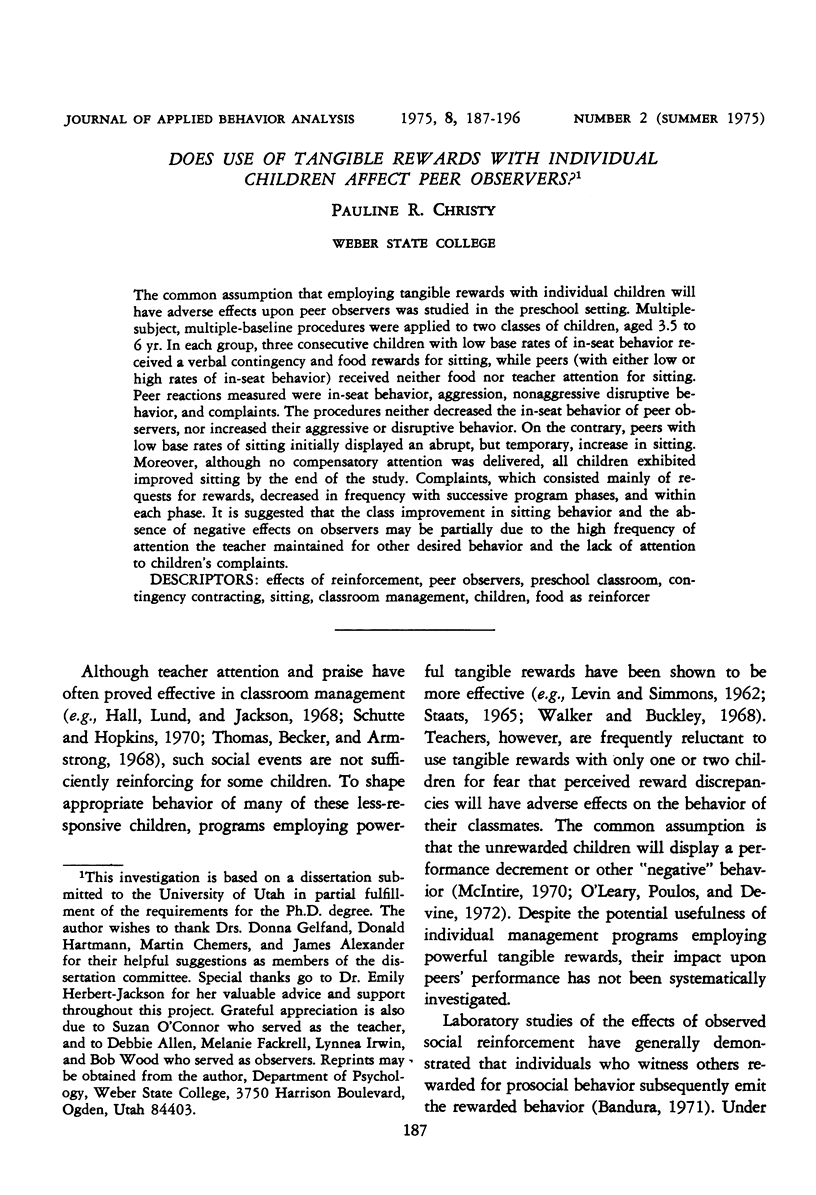
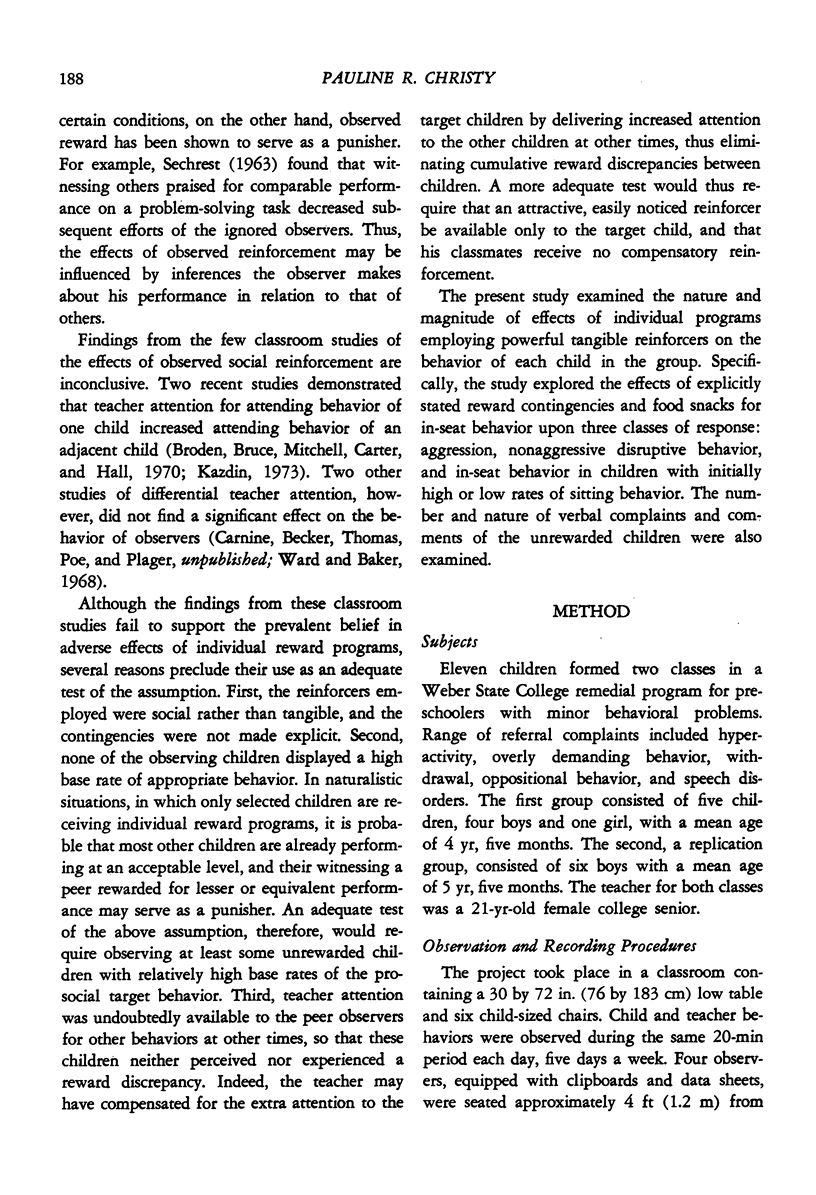
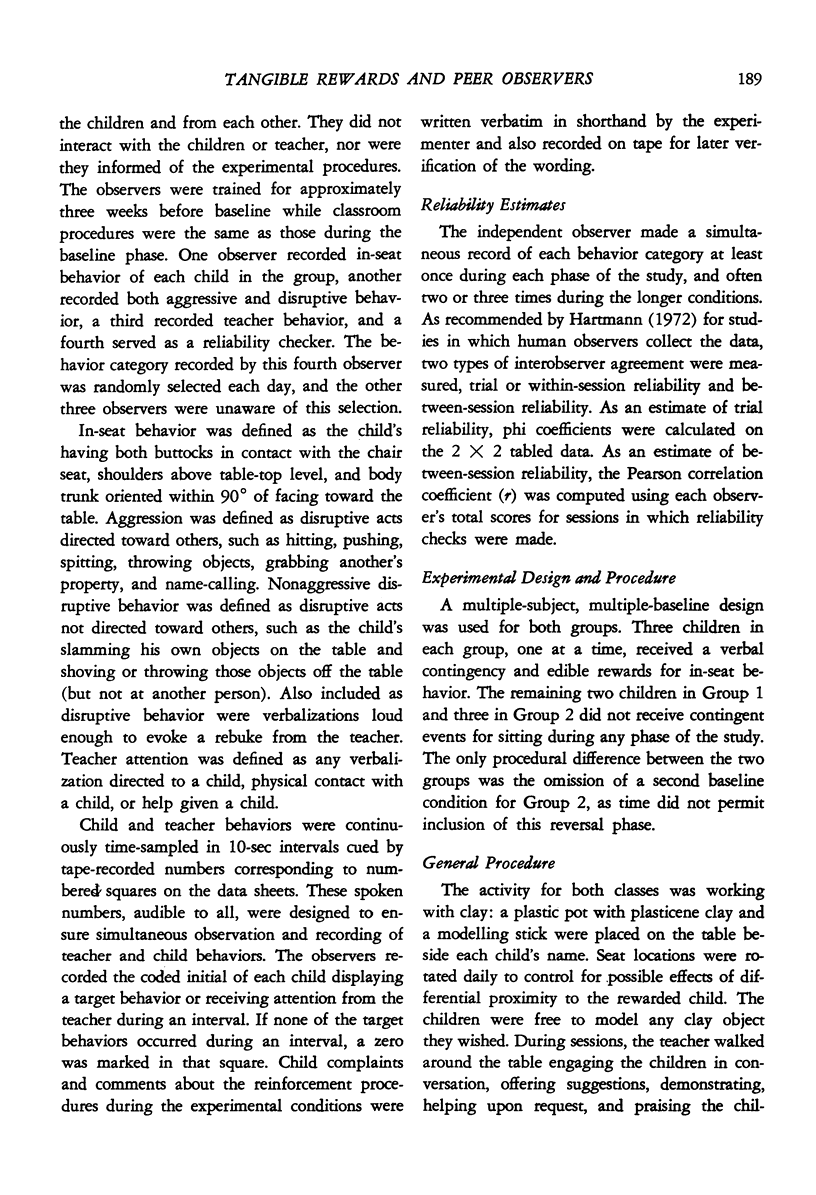
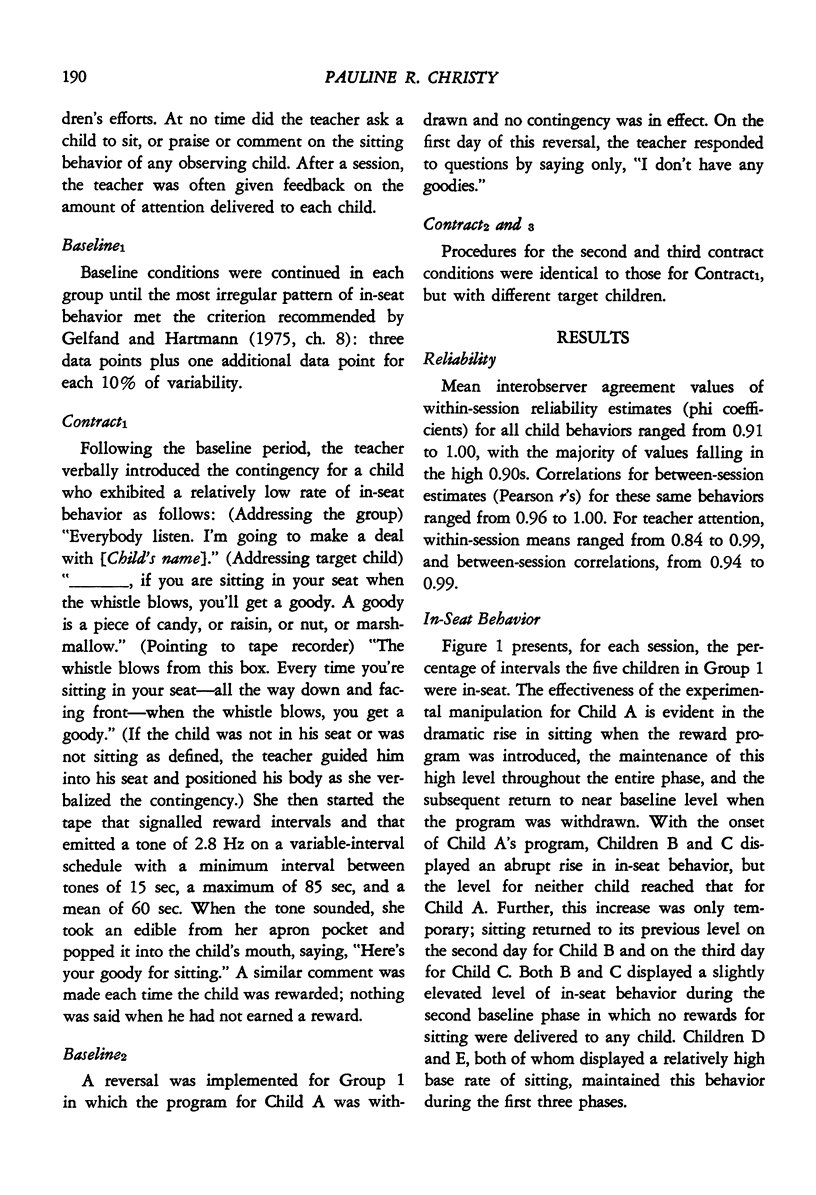
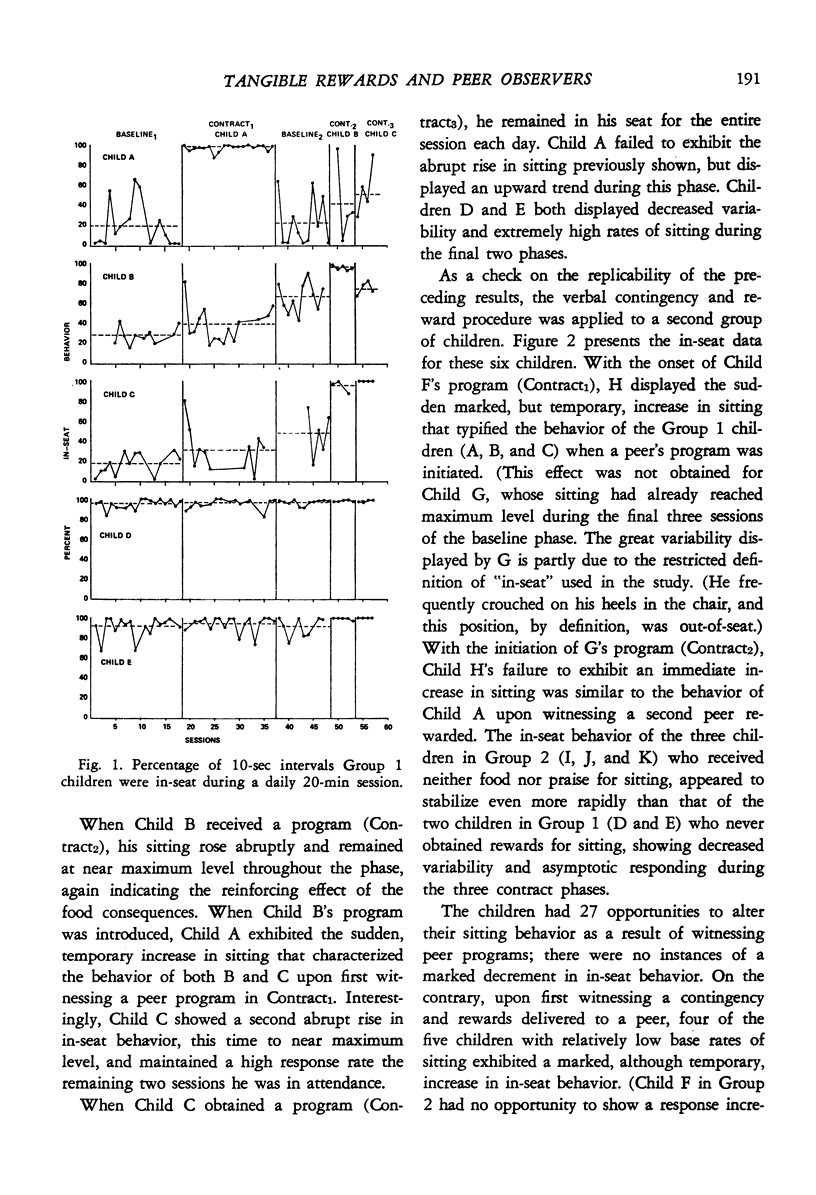
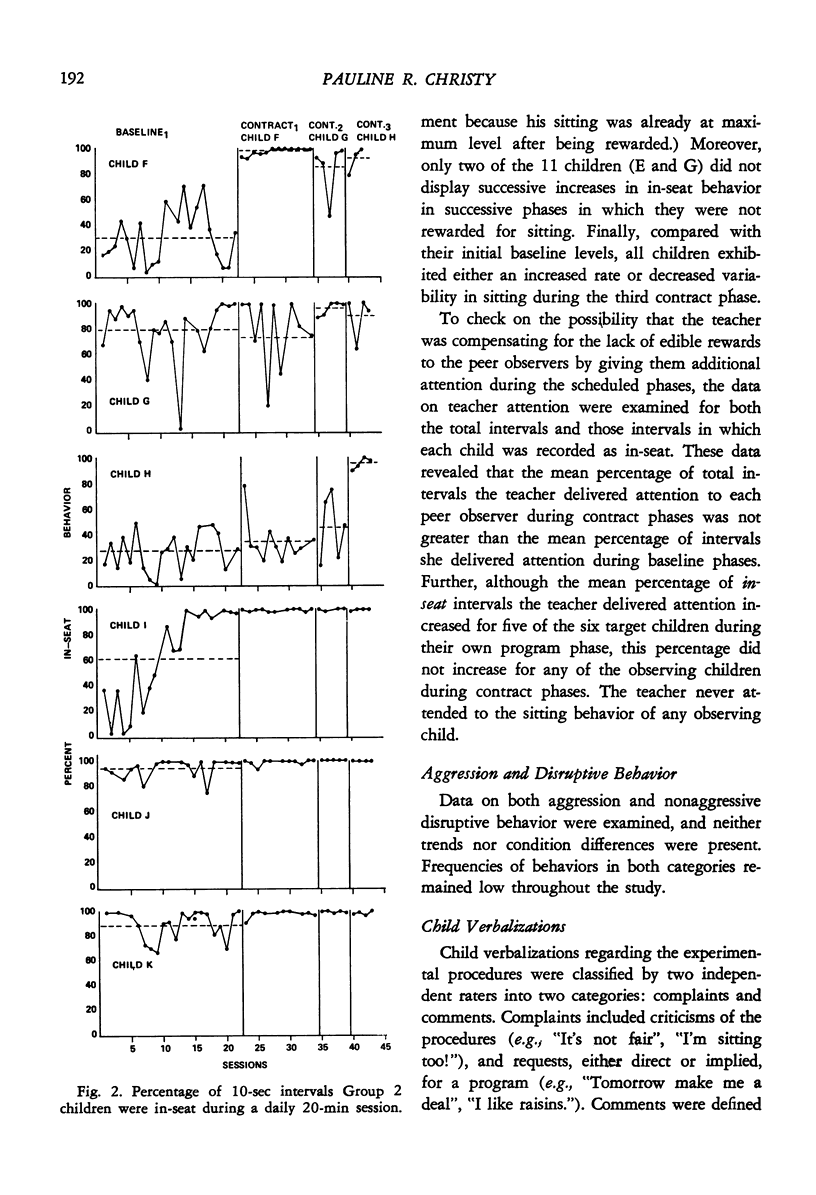
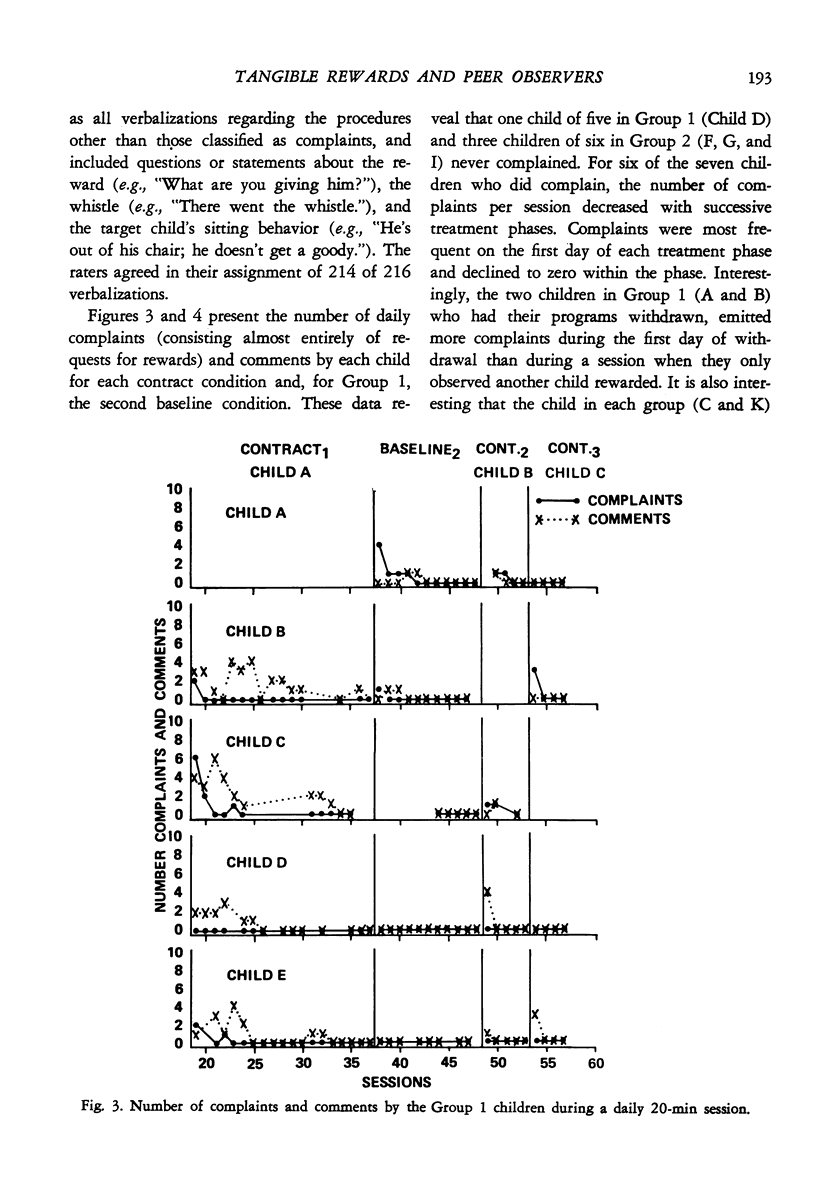
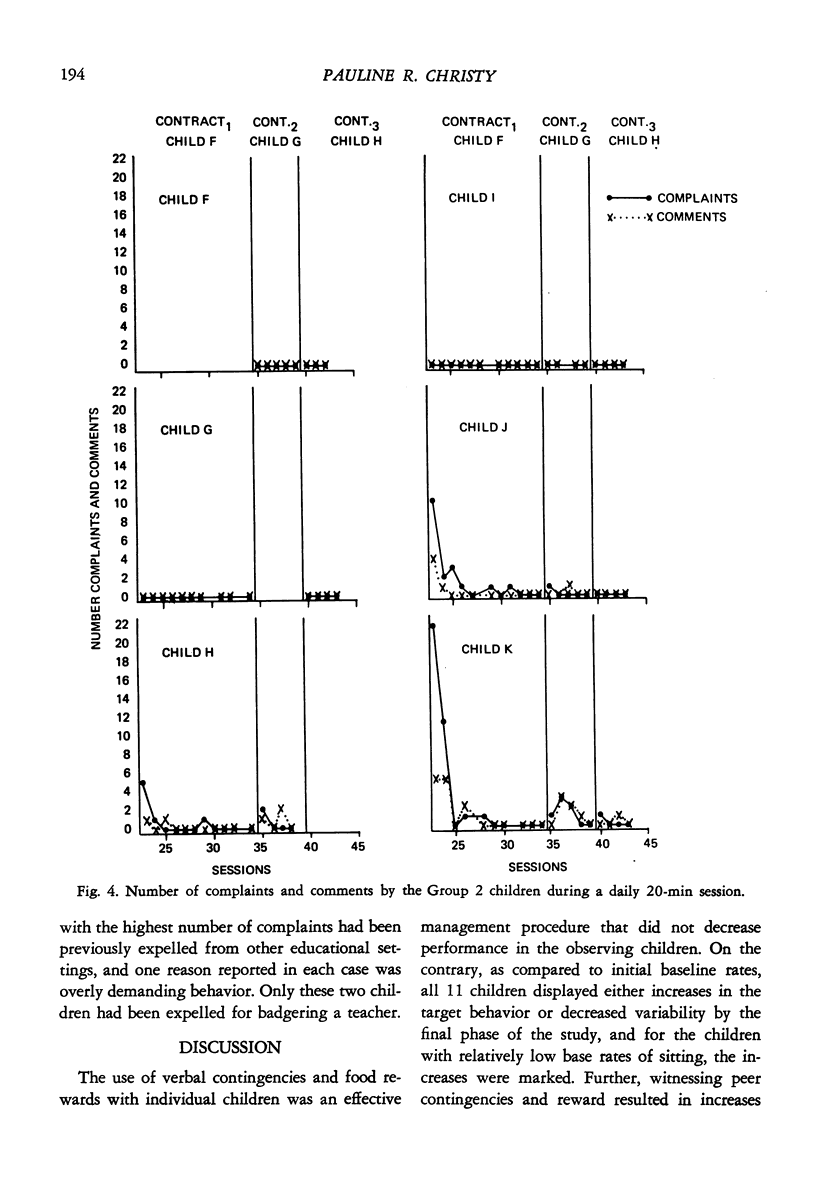
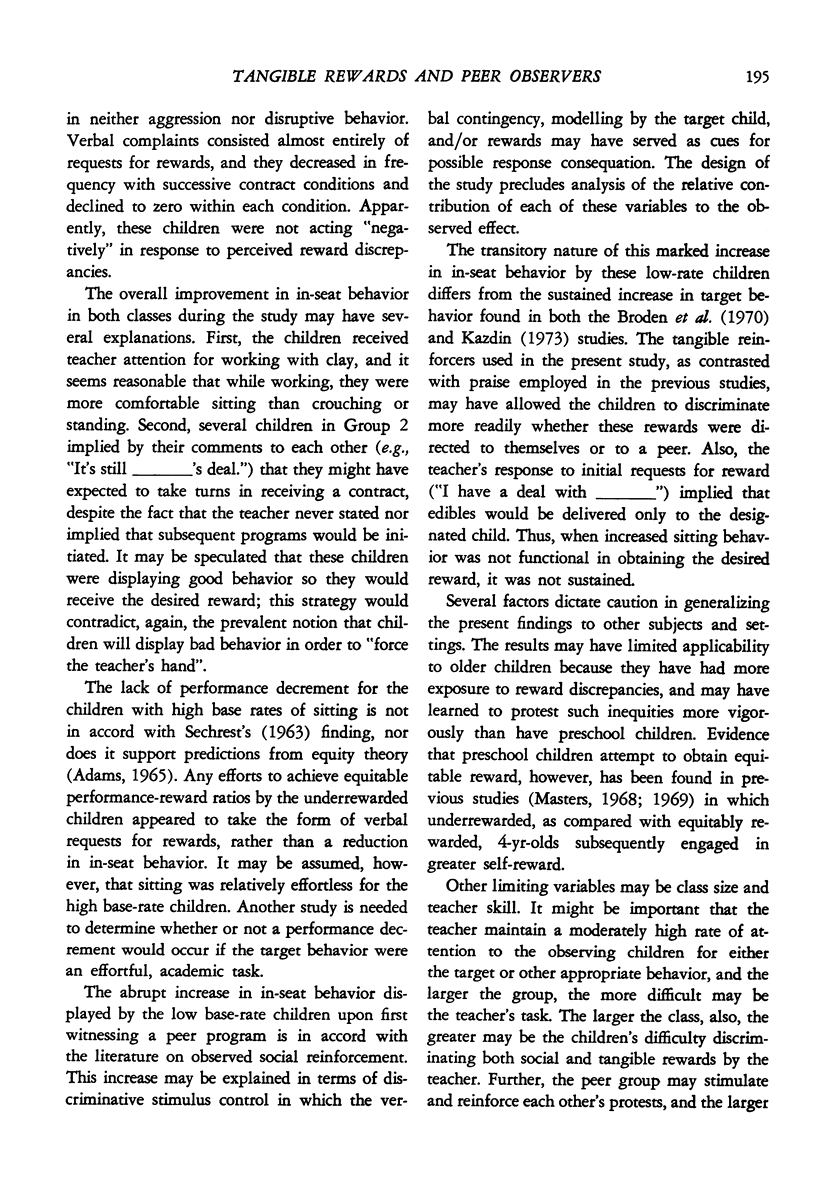
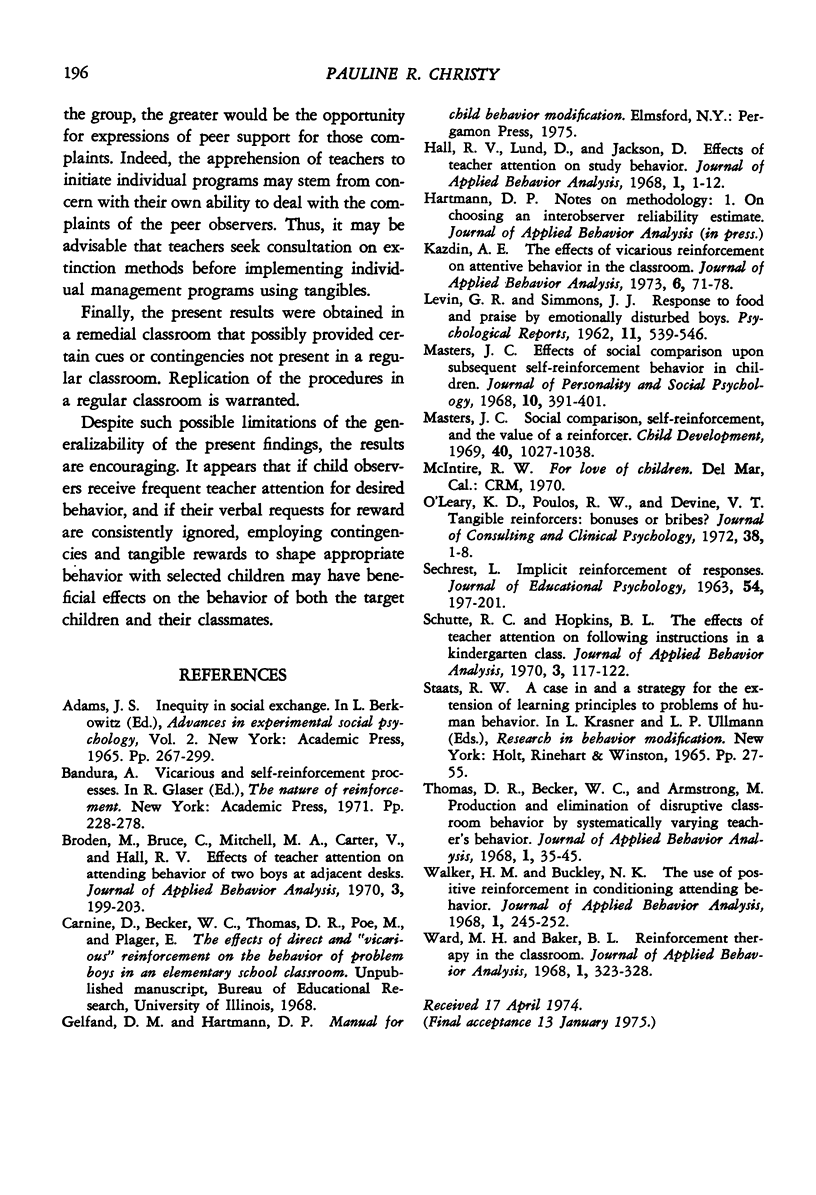
Selected References
These references are in PubMed. This may not be the complete list of references from this article.
- Broden M., Bruce C., Mitchell M. A., Carter V., Hall R. V. Effects of teacher attention on attending behavior of two boys at adjacent desks. J Appl Behav Anal. 1970 Fall;3(3):199–203. doi: 10.1901/jaba.1970.3-199. [DOI] [PMC free article] [PubMed] [Google Scholar]
- Hall R. V., Lund D., Jackson D. Effects of teacher attention on study behavior. J Appl Behav Anal. 1968 Spring;1(1):1–12. doi: 10.1901/jaba.1968.1-1. [DOI] [PMC free article] [PubMed] [Google Scholar]
- Kazdin A. E. The effect of vicarious reinforcement on attentive behavior in the classroom. J Appl Behav Anal. 1973 Spring;6(1):71–78. doi: 10.1901/jaba.1973.6-71. [DOI] [PMC free article] [PubMed] [Google Scholar]
- O'Leary K. D., Poulos R. W., Devine V. T. Tangible reinforcers: bonuses or bribes? J Consult Clin Psychol. 1972 Feb;38(1):1–8. doi: 10.1037/h0032412. [DOI] [PubMed] [Google Scholar]
- Schutte R. C., Hopkins B. L. The effects of teacher attention on following instructions in a kindergarten class. J Appl Behav Anal. 1970 Summer;3(2):117–122. doi: 10.1901/jaba.1970.3-117. [DOI] [PMC free article] [PubMed] [Google Scholar]
- Thomas D. R., Becker W. C., Armstrong M. Production and elimination of disruptive classroom behavior by systematically varying teacher's behavior. J Appl Behav Anal. 1968 Spring;1(1):35–45. doi: 10.1901/jaba.1968.1-35. [DOI] [PMC free article] [PubMed] [Google Scholar]
- Walker H. M., Buckley N. K. The use of positive reinforcement in conditioning attending behavior. J Appl Behav Anal. 1968 Fall;1(3):245–250. doi: 10.1901/jaba.1968.1-245. [DOI] [PMC free article] [PubMed] [Google Scholar]
- Ward M. H., Baker B. L. Reinforcement therapy in the classroom. J Appl Behav Anal. 1968 Winter;1(4):323–328. doi: 10.1901/jaba.1968.1-323. [DOI] [PMC free article] [PubMed] [Google Scholar]


